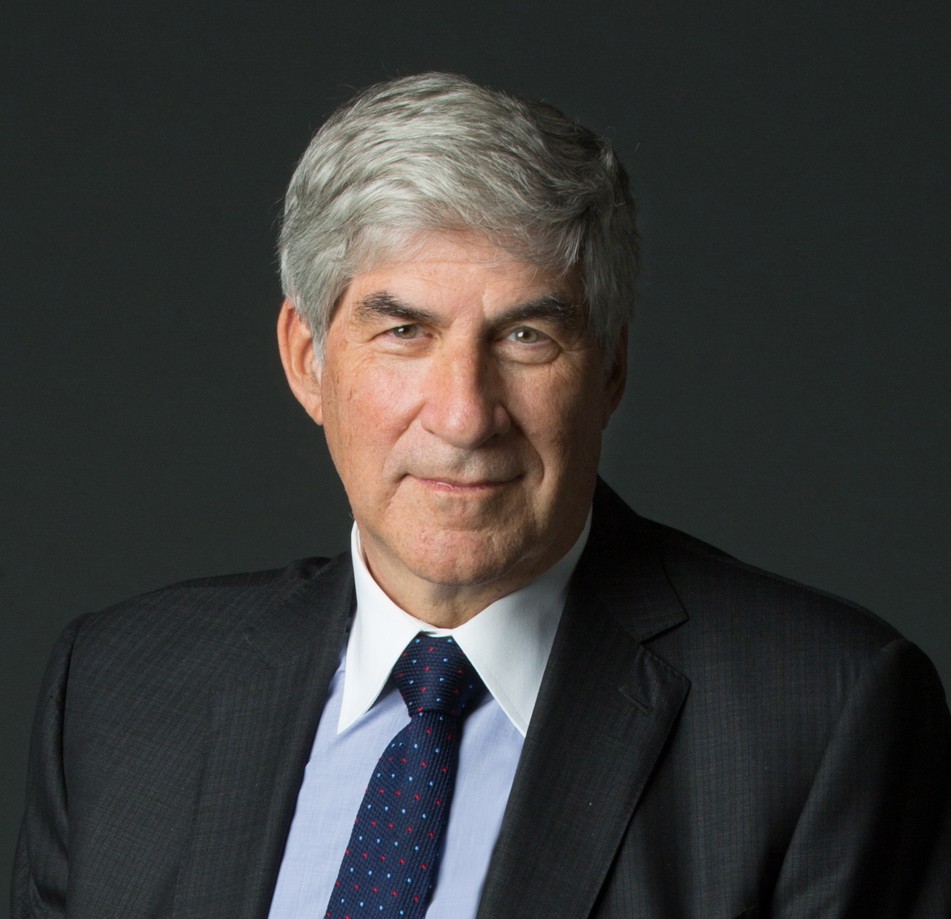Learn And Trade As The “Forex God”



Editorial Note: While we adhere to strict Editorial Integrity, this post may contain references to products from our partners. Here's an explanation for How We Make Money. None of the data and information on this webpage constitutes investment advice according to our Disclaimer.
The informal term "Forex God" refers to highly successful and renowned Forex traders such as George Soros, Bruce Kovner, and Paul Tudor Jones, who have demonstrated exceptional skills and profitability in the Forex markets.
Learning to trade like a "Forex God" means going beyond basic strategies and developing a trader's instinct. It’s about reading market trends, knowing when to take risks, and staying calm when others panic. Success doesn’t happen overnight, but by focusing on smart risk-taking, discipline, and using tools that actually work, you can build the kind of confidence that makes great traders stand out. This is about turning potential into skill — not just in theory, but in real-world trading.
What is a “Forex God”?
The term "Forex God" can indeed be used informally to refer to the most successful and renowned Forex traders in the world, like George Soros, Bruce Kovner, Paul Tudor Jones, and others.
These individuals have achieved extraordinary success in Forex trading and are often celebrated for their exceptional skills, insights, and ability to make significant profits in the foreign exchange markets. Their Forex trading strategies, decision-making processes, and Forex risk management techniques have been studied and admired by traders and investors worldwide.
What are the “Forex Gods” secrets?
Based on the information provided in the Traders Union article about the Richest Forex traders in the world and their advice, we can extract some valuable insights and "secrets" that have contributed to their success:
Risk management is your superpower
Bruce Kovner’s journey in trading shows just how vital it is to manage risks smartly. Successful trading isn’t just about chasing profits — it’s about knowing when to step back.

Setting stop-loss levels, using position sizes that fit your account, following risk-reward ratios, and thinking about the bigger picture can keep you from making one bad trade that wipes out everything. Risk management isn’t just a rule; it’s your safety net.
Use diverse trading approaches
Many successful traders, including Stanley Druckenmiller and Paul Tudor Jones, have utilized different trading approaches, such as "trend following" and "contrarian" methods. Having multiple strategies can help capitalize on various market conditions.

Emotional discipline is the key soft skill
Top traders like Stanley Druckenmiller and Marty Schwartz emphasize the power of staying cool under pressure. It’s easy to let fear or greed take the wheel, but making emotional decisions can sink even the best strategies. The real challenge is sticking to your plan when markets get rough. By keeping a clear head, you can avoid knee-jerk reactions and make smarter calls that keep you on track for long-term success. It’s not about perfection; it’s about staying steady.

Have an unique trading strategy
Successful Forex traders like George Soros succeed because they think differently and take calculated risks. Soros’s "reflexivity theory" wasn’t just about spotting mispriced assets — it was about understanding how markets often overreact to perceptions. His legendary move during the 1992 Black Wednesday crisis, where he shorted the British pound, wasn’t just luck; it was a mix of bold decision-making and deep insight, netting him $1 billion in profit.

For beginners, it’s tempting to dive into similar strategies, but remember that Soros didn’t succeed overnight. His success came from years of experience and a willingness to take risks most wouldn’t. Trying to copy such methods without understanding the mechanics of Forex trading or managing your risk properly can backfire. Instead, focus on finding a trading style that matches your personality and learn as you go. Trading isn’t about replicating someone else’s journey; it’s about creating your own path while staying realistic about the challenges.
Key steps to become a “Forex God”
If you want to become a successful Forex trader, following the steps below will increase your chances of success in the Forex market. However, it's essential to understand that success is not guaranteed in trading, and the Forex market involves inherent risks, so always trade responsibly and be prepared for potential losses.
1. Educate yourself, learn the Forex basics
Be sure to invest time in learning the ins and outs of Forex trading. Study technical analysis, fundamental analysis, market indicators, and trading strategies. Acquire a solid understanding of how the Forex market works and the factors that influence currency price movements. Free Forex trading library from Traders Union can help you to understand different Forex terms and trading strategies.2. Have a trading plan
Create a well-defined trading plan that outlines your trading goals, risk tolerance, preferred trading style, and money management strategies. Your plan should include criteria for entering and exiting trades, as well as guidelines for managing risk.3. Practice on demo accounts
Before trading with real money, practice your trading strategies on Forex demo accounts provided by most Forex brokers. Use this phase to gain practical experience, test your trading plan, and build confidence without risking actual funds.4. Find a reputable Forex broker
Choose a regulated Forex broker that offers the trading platform and services that align with your trading needs. Ensure the broker provides competitive spreads, reliable trade execution, and excellent customer support. You can refer to our researched list of the best Forex brokers for successful trading below for some guidance.
| Currency pairs | Demo | Min. deposit, $ | Max. leverage | Min Spread EUR/USD, pips | Max Spread EUR/USD, pips | Investor protection | Max. Regulation Level | Open an account | |
|---|---|---|---|---|---|---|---|---|---|
| 60 | Yes | 100 | 1:300 | 0,5 | 0,9 | €20,000 £85,000 SGD 75,000 | Tier-1 | Open an account Your capital is at risk. |
|
| 90 | Yes | No | 1:500 | 0,5 | 1,5 | £85,000 €20,000 €100,000 (DE) | Tier-1 | Open an account Your capital is at risk.
|
|
| 68 | Yes | No | 1:200 | 0,1 | 0,5 | £85,000 SGD 75,000 $500,000 | Tier-1 | Open an account Your capital is at risk. |
|
| 80 | Yes | 100 | 1:50 | 0,7 | 1,2 | £85,000 | Tier-1 | Study review | |
| 100 | Yes | No | 1:30 | 0,2 | 0,8 | $500,000 £85,000 | Tier-1 | Open an account Your capital is at risk. |
5. Implement strict risk management
Protect your capital by employing effective risk management techniques. This includes setting appropriate stop-loss orders for each trade, limiting your risk exposure per trade to a small percentage of your account balance, and avoiding over-leveraging positions.6. Cultivate discipline and patience
Successful Forex trading requires discipline and emotional control. Stick to your trading plan, avoid making impulsive decisions based on emotions, and be patient during drawdown periods. Stay focused on your long-term goals and continuously improve your trading skills.
Consistency and continuous learning are key to success in Forex trading. Be prepared to adapt to changing market conditions, stay informed about economic events that can impact currency markets, and be realistic about your trading expectations. Trading the Forex market involves inherent risks, and no strategy guarantees constant profits, so always be cautious and responsible with your trades.
Can I get rich in Forex?
Achieving wealth in the Forex market is possible, with some traders making billions, but it often involves starting small and gradually building profits. The journey can be long and difficult, as many traders experience losses along the way. However, a combination of factors, such as the right mindset, passion, consistent education, disciplined risk management, and learning from successful traders, can increase the likelihood of success. Remember that any type of investing money carries risks, and success is not guaranteed, so trade responsibly and manage expectations accordingly.
Becoming a Forex God isn’t an overnight phenomenon
Wealth creation in Forex trading is achievable, as evidenced by top traders who have amassed significant fortunes. However, this success is rarely overnight. Most start with small investments, focusing on steady growth over time. The journey is challenging and often marked by losses, but persistence and a strategic approach make a difference.
To enhance your chances, cultivate the right mindset — approach trading with discipline, patience, and a passion for continuous learning. Invest in your education to understand market dynamics and refine your strategies. Prioritize disciplined risk management to safeguard your capital and build a sustainable trading foundation. Study the practices of successful traders, but adapt their insights to fit your unique style and goals.
Conclusion
To succeed in Forex trading, focus on mastering key principles: effective risk management, emotional discipline, continuous learning, and a passion for trading. Start with a solid foundation — educating yourself, practicing on demo accounts, and following a disciplined plan. Patience and resilience are essential for long-term success. Draw inspiration from legendary traders while forging your unique path, and remember to trade responsibly. Your journey starts now!
FAQs
How to learn and trade Forex?
Start by understanding the basics of Forex, like currency pairs and how the market works. Practice on a demo account to get hands-on experience, and focus on one strategy at a time. Learning risk management and staying updated with market news are key to trading effectively.
What is the 5-3-1 rule in trading?
The 5-3-1 rule suggests focusing on 5 currency pairs, mastering 3 trading strategies, and trading at 1 specific time each day. It helps beginners stay disciplined and avoid overwhelming themselves.
Is it good to learn Forex trading?
Yes, if you’re interested in financial markets and willing to invest time in learning. It can be rewarding, but it’s not a get-rich-quick scheme — it requires patience, discipline, and a good understanding of risk.
What is the 80% rule in trading?
The 80% rule in trading states that if a price returns to the value area (where 70-80% of past trading occurred), it’s likely to move through that area fully. It’s often used in technical analysis to predict price movements.
Related Articles
Team that worked on the article
Rinat Gismatullin is an entrepreneur and a business expert with 9 years of experience in trading. He focuses on long-term investing, but also uses intraday trading. He is a private consultant on investing in digital assets and personal finance. Rinat holds two degrees in Economy and Linguistics.
Chinmay Soni is a financial analyst with more than 5 years of experience in working with stocks, Forex, derivatives, and other assets. As a founder of a boutique research firm and an active researcher, he covers various industries and fields, providing insights backed by statistical data. He is also an educator in the field of finance and technology.
As an author for Traders Union, he contributes his deep analytical insights on various topics, taking into account various aspects.
Mirjan Hipolito is a journalist and news editor at Traders Union. She is an expert crypto writer with five years of experience in the financial markets. Her specialties are daily market news, price predictions, and Initial Coin Offerings (ICO).
A Forex trading scam refers to any fraudulent or deceptive activity in the foreign exchange (Forex) market, where individuals or entities engage in unethical practices to defraud traders or investors.
Day trading involves buying and selling financial assets within the same trading day, with the goal of profiting from short-term price fluctuations, and positions are typically not held overnight.
Risk management is a risk management model that involves controlling potential losses while maximizing profits. The main risk management tools are stop loss, take profit, calculation of position volume taking into account leverage and pip value.
Forex trading, short for foreign exchange trading, is the practice of buying and selling currencies in the global foreign exchange market with the aim of profiting from fluctuations in exchange rates. Traders speculate on whether one currency will rise or fall in value relative to another currency and make trading decisions accordingly. However, beware that trading carries risks, and you can lose your whole capital.
Trade execution is knowing how to place and close trades at the right price. This is the key to turning your trading plans into real action and has a direct impact on your profits.






























































































































